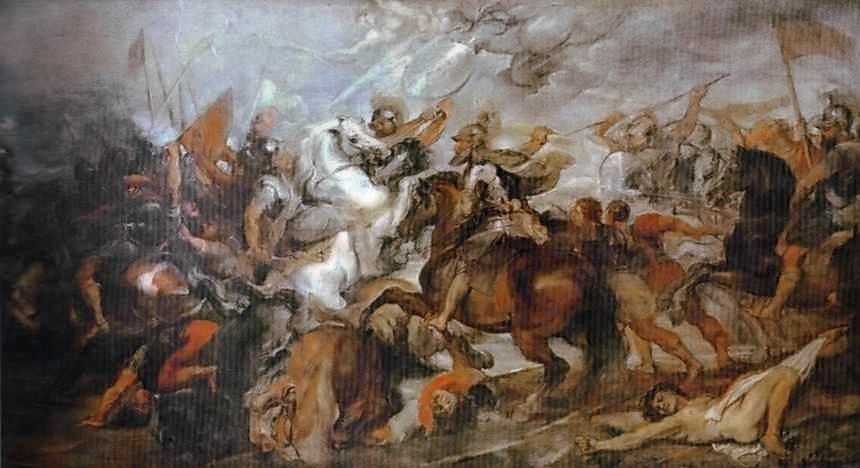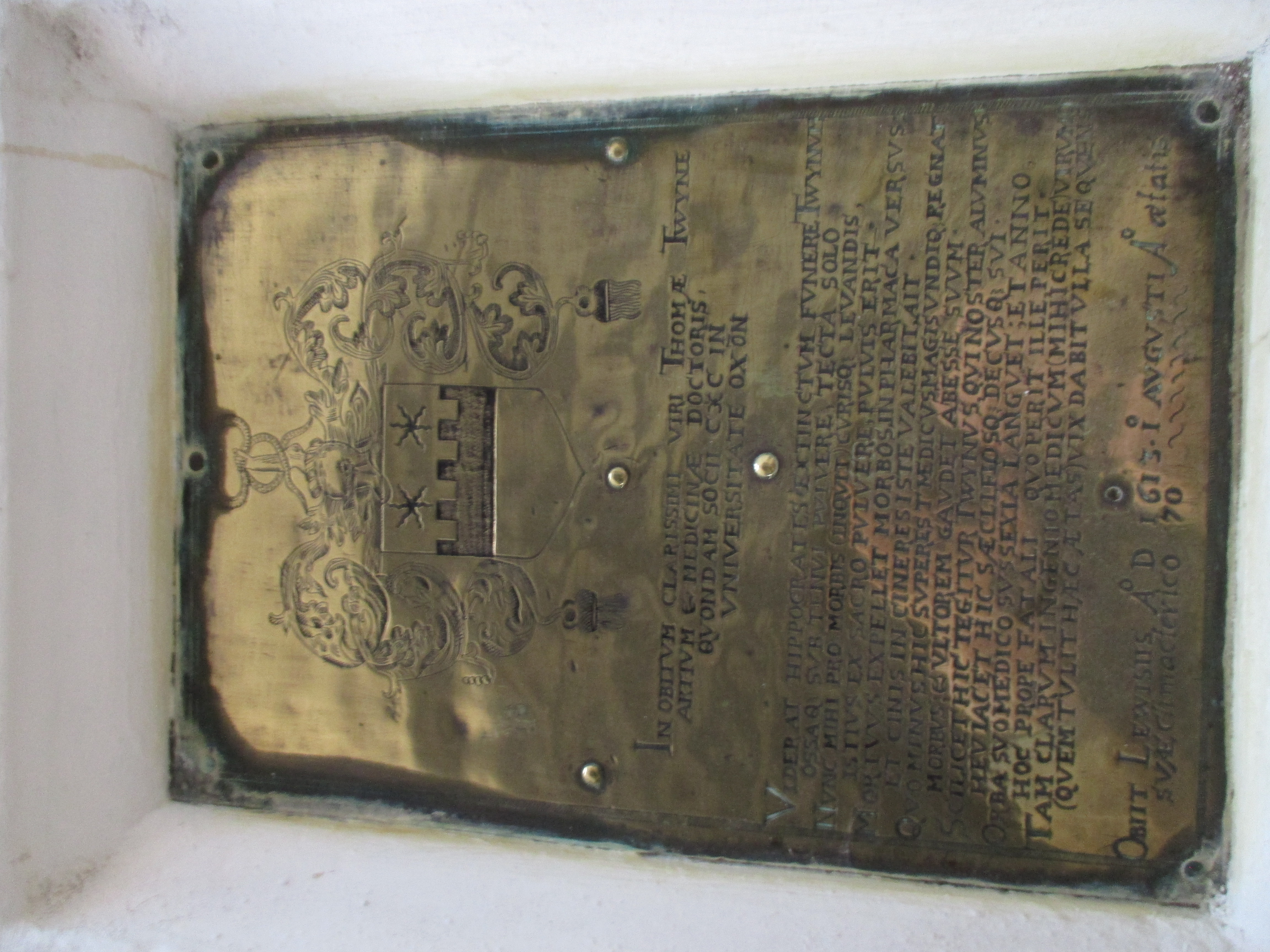|
Lambertus Danaeus
Lambert Daneau (c. 1530 – c. 1590) was a French jurist and Calvinist theologian. Life He was born at Beaugency-sur-Loire, and educated at Orléans. He studied Greek under Adrianus Turnebus, and then law in Orléans from 1553. He moved to Bourges in 1559; he was particularly influenced by François Hotman, and by Anne du Bourg, who was executed in that year for heresy. He went to Geneva first in 1560, and studied at the Genevan Academy. He then became a pastor in Gien. After eight fruitful further years in Geneva from 1572, he made a reputation as preacher and theological writer. He left for a position in the University of Leiden. He taught also in Ghent, Orthez, Lescar, and Castres. Views Scott Manetsch describes Daneau as a "champion of Calvinist orthodoxy, with the expansive vision of expanding and extending the domains of secular knowledge... on the basis of Scripture through the use of the scholastic method of dialectic." Daneau wrote on many subjects, including a com ... [...More Info...] [...Related Items...] OR: [Wikipedia] [Google] [Baidu] |
Scholasticism
Scholasticism was a medieval European philosophical movement or methodology that was the predominant education in Europe from about 1100 to 1700. It is known for employing logically precise analyses and reconciling classical philosophy and Catholic Christianity. The Scholastics, also known as Schoolmen, utilized dialectical reasoning predicated upon Aristotelianism and the categories (Aristotle), Ten Categories. Scholasticism emerged within the monastic schools that translated medieval Judeo-Islamic philosophies (800–1400), Judeo-Islamic philosophies, and "rediscovered" the Corpus Aristotelicum, collected works of Aristotle. Endeavoring to harmonize Aristotle's metaphysics (Aristotle), metaphysics and Latin Catholic theology, these monastic schools became the basis of the earliest European medieval university, medieval universities, and thus became the bedrock for the development of History of science, modern science and Western philosophy, philosophy in the Western world. T ... [...More Info...] [...Related Items...] OR: [Wikipedia] [Google] [Baidu] |
16th-century French Male Writers
The 16th century began with the Julian year 1501 (represented by the Roman numerals MDI) and ended with either the Julian or the Gregorian year 1600 (MDC), depending on the reckoning used (the Gregorian calendar introduced a lapse of 10 days in October 1582). The Renaissance in Italy and Europe saw the emergence of important artists, authors and scientists, and led to the foundation of important subjects which include accounting and political science. Copernicus proposed the heliocentric universe, which was met with strong resistance, and Tycho Brahe refuted the theory of celestial spheres through observational measurement of the 1572 appearance of a Milky Way supernova. These events directly challenged the long-held notion of an immutable universe supported by Ptolemy and Aristotle, and led to major revolutions in astronomy and science. Galileo Galilei became a champion of the new sciences, invented the first thermometer and made substantial contributions in the fields of phy ... [...More Info...] [...Related Items...] OR: [Wikipedia] [Google] [Baidu] |
16th-century French Writers
The 16th century began with the Julian calendar, Julian year 1501 (represented by the Roman numerals MDI) and ended with either the Julian or the Gregorian calendar, Gregorian year 1600 (MDC), depending on the reckoning used (the Gregorian calendar introduced a lapse of 10 days in October 1582). The Renaissance in Italy and Europe saw the emergence of important artists, authors and scientists, and led to the foundation of important subjects which include accounting and political science. Copernicus proposed the Copernican heliocentrism, heliocentric universe, which was met with strong resistance, and Tycho Brahe refuted the theory of celestial spheres through observational measurement of the SN 1572, 1572 appearance of a Milky Way supernova. These events directly challenged the long-held notion of an immutable universe supported by Ptolemy and Aristotle, and led to major revolutions in astronomy and science. Galileo Galilei became a champion of the new sciences, invented the first ... [...More Info...] [...Related Items...] OR: [Wikipedia] [Google] [Baidu] |
Demonologists
Demonology is the study of demons within Religion, religious belief and myth. Depending on context, it can refer to studies within theology, religious doctrine, or occultism. In many faiths, it concerns the study of a Classification of demons, hierarchy of demons. Demons may be nonhuman separable souls, or discarnate spirits which have never inhabited a body. A sharp distinction is often drawn between these two classes, notably by the Melanesians, several African groups, and others. The Islamic jinn, for example, are not reducible to modified human souls. At the same time these classes are frequently conceived as producing identical results, e.g. diseases.van der Toorn, Becking, van der Horst (1999), ''Dictionary of Deities and Demons in The Bible'', Second Extensively Revised Edition, Entry: Demon, pp. 235-240, William B. Eerdmans Publishing Company, Prevalence of demons According to some religions, all the affairs of the universe are supposed to be under the control of spirit ... [...More Info...] [...Related Items...] OR: [Wikipedia] [Google] [Baidu] |
Witchcraft Treatises
Witchcraft is the use of Magic (supernatural), magic by a person called a witch. Traditionally, "witchcraft" means the use of magic to inflict supernatural harm or misfortune on others, and this remains the most common and widespread meaning. According to ''Encyclopedia Britannica'', "Witchcraft thus defined exists more in the imagination", but it "has constituted for many cultures a viable explanation of evil in the world". The belief in witches has been found throughout history in a great number of societies worldwide. Most of these societies have used Apotropaic magic, protective magic or counter-magic against witchcraft, and have shunned, banished, imprisoned, physically punished or killed alleged witches. Anthropologists use the term "witchcraft" for similar beliefs about harmful occult practices in different cultures, and these societies often use the term when speaking in English. Belief in witchcraft as malevolent magic is attested from #Ancient Mesopotamian religion ... [...More Info...] [...Related Items...] OR: [Wikipedia] [Google] [Baidu] |
French Calvinist And Reformed Theologians
French may refer to: * Something of, from, or related to France ** French language, which originated in France ** French people, a nation and ethnic group ** French cuisine, cooking traditions and practices Arts and media * The French (band), a British rock band * "French" (episode), a live-action episode of ''The Super Mario Bros. Super Show!'' * ''Française'' (film), a 2008 film * French Stewart (born 1964), American actor Other uses * French (surname), a surname (including a list of people with the name) * French (tunic), a type of military jacket or tunic * French's, an American brand of mustard condiment * French (catheter scale), a unit of measurement * French Defence, a chess opening * French kiss, a type of kiss See also * France (other) * Franch, a surname * French Revolution (other) * French River (other), several rivers and other places * Frenching (other) Frenching may refer to: * Frenching (automobile), recessing or moul ... [...More Info...] [...Related Items...] OR: [Wikipedia] [Google] [Baidu] |
1590 Deaths
Events January–March * January 6 – García Hurtado de Mendoza, 5th Marquis of Cañete, García Hurtado de Mendoza becomes the new List of viceroys of Peru, Viceroy of Peru (nominally including most of South America except for Brazil). He will serve until 1596. * January 10 – Construction of the Livorno#Fortezza Nuova, Fortezza Nuova around the city of Livorno begins in Italy in the Grand Duchy of Tuscany on the orders of Ferdinando I de' Medici, Grand Duke of Tuscany and continues for more than 14 years. * January 25 – Luis de Velasco, 1st Marquess of Salinas del Río Pisuerga, Luis de Velasco y Castilla, Marquess of Salinas, becomes the new List of viceroys of New Spain, Viceroy of New Spain, a colony comprising most of Central America, Mexico and what is now a large part of the southwestern United States. Velasco will govern until 1595, and then again from 1607 to 1611. * February 3 – Peter Ernst I von Mansfeld-Vorderort, the German-born c ... [...More Info...] [...Related Items...] OR: [Wikipedia] [Google] [Baidu] |
1530s Births
Year 153 ( CLIII) was a common year starting on Sunday of the Julian calendar. At the time, it was known as the Year of the Consulship of Rusticus and Rufinus (or, less frequently, year 906 ''Ab urbe condita''). The denomination 153 for this year has been used since the early medieval period, when the Anno Domini calendar era became the prevalent method in Europe for naming years. Events By place Roman Empire * Minor uprisings occur in Roman Egypt against Roman rule. Asia * Change of era name from ''Yuanjia'' (3rd year) to ''Yongxing'' of the Chinese Han Dynasty. Births * Didia Clara, daughter of Didius Julianus * Kong Rong Kong Rong () (151/153 – 26 September 208), courtesy name Wenju, was a Chinese poet, politician, and minor warlord who lived during the late Eastern Han dynasty of China. He was a 20th generation descendant of Confucius. As he was once the Cha ..., Chinese official and warlord (d. 208) * Zhang Hong, Chinese official and politician (d. ... [...More Info...] [...Related Items...] OR: [Wikipedia] [Google] [Baidu] |
Thomas Twyne
Thomas Twyne (1543 – 1 August 1613 Lewes) was an Elizabethan translator and a physician of Lewes in Sussex, best known for completing Thomas Phaer's translation of Virgil's Aeneid into English verse after Phaer's death in 1560, and for his 1579 English translation of ''De remediis utriusque fortunae'', a collection of 253 Latin dialogues written by the humanist Francesco Petrarca (1304–1374), commonly known as Petrarch. Thomas was the son of John Twyne (c.1500-1581) of Bullington, Hampshire, himself a translator, schoolmaster, noted collector of antiquarian manuscripts and author of the Commentary ''De Rebus Albionicis'' (London, 1590). Tywne's son, Brian Twyne, became the first Keeper of the Archives of the University of Oxford. Thomas was a native of Canterbury and was educated at Corpus Christi College, Oxford. He acted in the Richard Edwardes version of ''Palamon and Arcite (Edwardes), Palamon and Arcite'', put on before Elizabeth I at Oxford in 1566, on which occasion the ... [...More Info...] [...Related Items...] OR: [Wikipedia] [Google] [Baidu] |
Witchcraft
Witchcraft is the use of Magic (supernatural), magic by a person called a witch. Traditionally, "witchcraft" means the use of magic to inflict supernatural harm or misfortune on others, and this remains the most common and widespread meaning. According to ''Encyclopedia Britannica'', "Witchcraft thus defined exists more in the imagination", but it "has constituted for many cultures a viable explanation of evil in the world". The belief in witches has been found throughout history in a great number of societies worldwide. Most of these societies have used Apotropaic magic, protective magic or counter-magic against witchcraft, and have shunned, banished, imprisoned, physically punished or killed alleged witches. Anthropologists use the term "witchcraft" for similar beliefs about harmful occult practices in different cultures, and these societies often use the term when speaking in English. Belief in witchcraft as malevolent magic is attested from #Ancient Mesopotamian religion ... [...More Info...] [...Related Items...] OR: [Wikipedia] [Google] [Baidu] |
Oxford University Press
Oxford University Press (OUP) is the publishing house of the University of Oxford. It is the largest university press in the world. Its first book was printed in Oxford in 1478, with the Press officially granted the legal right to print books by decree in 1586. It is the second-oldest university press after Cambridge University Press, which was founded in 1534. It is a department of the University of Oxford. It is governed by a group of 15 academics, the Delegates of the Press, appointed by the Vice Chancellor, vice-chancellor of the University of Oxford. The Delegates of the Press are led by the Secretary to the Delegates, who serves as OUP's chief executive and as its major representative on other university bodies. Oxford University Press has had a similar governance structure since the 17th century. The press is located on Walton Street, Oxford, Walton Street, Oxford, opposite Somerville College, Oxford, Somerville College, in the inner suburb of Jericho, Oxford, Jericho. ... [...More Info...] [...Related Items...] OR: [Wikipedia] [Google] [Baidu] |





